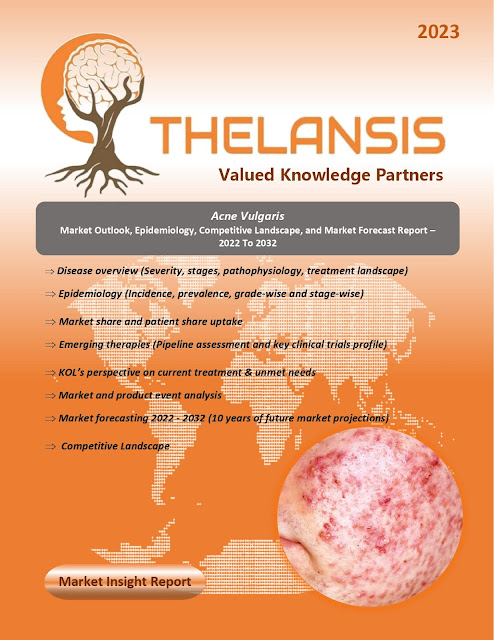Ovarian Cancer – Market Outlook, Epidemiology, Competitive Landscape, and Market Forecast Report – 2023 To 2033
Ovarian Cancer (OC) is the eighth most common cancer in women. Worldwide incidence cases range between 299,414 to 312,500 new cases in 2020. OC is amongst the leading causes of cancer-related death in women, particularly in the 40–79 age group. Survival rates vary significantly depending on the disease stage at diagnosis. Around 70-80% of patients are diagnosed in their advanced stages of the disease with a 5-year survival of 29 to 30%; ninety percent of patients with early-stage disease are alive at ten years compared with only around 15% with advanced disease, despite optimal treatment. A woman’s lifetime risk of developing OC is 1 in 75, and her chance of dying of the disease is 1 in 100. First-degree relatives of probands have a 3- to 7-fold increased risk, significantly if multiple relatives are affected at an early age. Rare high penetrant mutations in the BRCA1 and BRCA2 genes increase lifetime risk substantially and account for most hereditary cases and 10%–15% of all cases.
·
The three primary types of ovarian cancer are
epithelial, germ cell, and sex cord-stromal, accounting for 90%, 3%, and 2% of
cases, respectively. Epithelial cancers are further classified into serious
(52%), endometrioid (10%), mucinous (6%), and clear cell (6%) tumors.
Thelansis’s
“Ovarian Cancer Market Outlook, Epidemiology, Competitive Landscape, and Market
Forecast Report – 2023 To 2033" covers disease overview, epidemiology,
drug utilization, prescription share analysis, competitive landscape, clinical
practice, regulatory landscape, patient share, market uptake, market forecast,
and key market insights under the potential Ovarian Cancer treatment modalities
options for eight major markets (USA, Germany, France, Italy, Spain, UK, Japan,
and China).
KOLs insights of Ovarian Cancer across
8 MM market from the centre of Excellence/ Public/ Private hospitals
participated in the study. Insights around current treatment landscape,
epidemiology, clinical characteristics, future treatment paradigm, and Unmet
needs.
Ovarian
Cancer Market Forecast Patient Based Forecast Model (MS. Excel Based
Automated Dashboard), which Data Inputs with sourcing, Market Event, and
Product Event, Country specific Forecast Model, Market uptake and patient share
uptake, Attribute Analysis, Analog Analysis, Disease burden, and pricing
scenario, Summary, and Insights.
Thelansis Competitive Intelligence (CI) practice
has been established based on a deep understanding of the pharma/biotech
business environment to provide an optimized support system to all levels of
the decision-making process. It enables business leaders in forward-thinking
and proactive decision-making. Thelansis supports scientific and commercial
teams in seamless CI support by creating an AI/ ML-based technology-driven
platform that manages the data flow from primary and secondary sources.
Tags: Ovarian
Cancer, Ovarian Cancer market outlook, Ovarian
Cancer competitive landscape, Ovarian Cancer market forecast, Thelansis, Primary market research, KOL
insights, Competitive Intelligence (CI)




Comments
Post a Comment